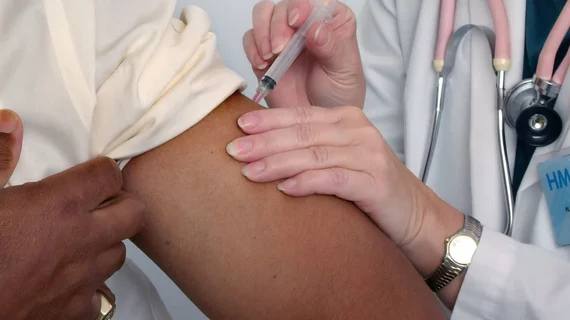Why heart failure patients should receive a COVID-19 vaccine as quickly as possible
Patients with acute heart failure who test positive for COVID-19 face a heightened risk of death, according to new research published in ESC Heart Failure.
The study’s authors tracked data from 283 patients in the UK. Overall, they found that the mortality rate for acute heart failure patients was 11% before the pandemic began and 21% in the first eight weeks of the pandemic. When taking patients with a positive COVID-19 test out of the equation, however, that difference in mortality disappeared. This, the researchers noted, suggests that testing positive for COVID-19 nearly doubles a patient’s risk of dying.
“Our results support prioritizing heart failure patients for COVID-19 vaccination once it is available,” lead investigator Amardeep Dastidar, PHD, a consultant interventional cardiologist at North Bristol NHS Trust and the Bristol Heart Institute in the UK, said in a statement. “In the meantime, heart failure patients of all ages should be considered a high-risk group and be advised to maintain social distance and wear a face mask to prevent infection.”
Researchers also found that heart failure-related hospital admissions dropped slightly when the pandemic began, a detail they attributed to “public concerns about social distancing.”
The study did have certain limitations. It covered the earliest stages of the pandemic, for example, and used data from a single facility. Dastidar noted that follow-up studies could provide valuable updates to his team’s work.
“It would be informative to review more recent admissions when COVID testing was more widely implemented to further support our findings,” he said. “As this was a single center study, it would be valuable to confirm the findings in a countrywide analysis. Additionally, we are keen to review longer term data to look for patterns of prognosis at later stages in this patient population.”
Click here for the full study.

